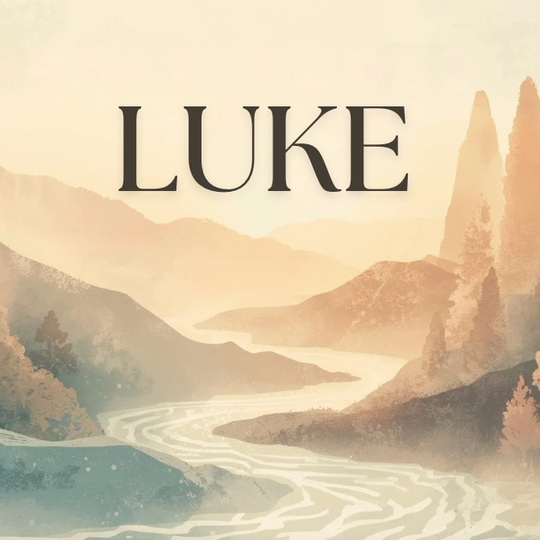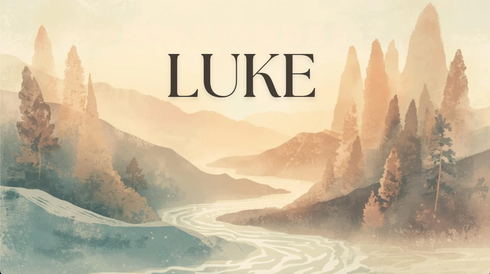
Luke 21: Jesus Gets Crazy
The scene opens with simple devotion: a widow shuffles forward and slips two tiny coins into the temple treasury. No one notices—except Jesus. That quiet moment reframes value, worship, and trust. The point isn’t the size of the gift but the shape of the heart. In a culture that measures worth by volume and visibility, Jesus measures worth by sacrifice and sincerity. The widow’s offering reveals a kingdom economy where faith weighs more than funds and trust outbids applause. It’s an uncomfortable comfort: God doesn’t need what we have, yet He delights in us bringing our best. Money in Scripture often functions as condensed life—time, energy, and effort distilled into currency. To give is to declare allegiance, to worship with something that costs us, to say “You are my source” when scarcity whispers otherwise. That recalibration changes how we see generosity—not as charity from surplus but worship from devotion.
From that quiet court, Luke 21 pivots hard into turbulence. The disciples marvel at the temple’s stones; Jesus speaks of stones soon unstacked. He lists deceivers, wars, quakes, famines, plagues, and celestial signs. He predicts persecution not as a detour but as a stage: trials become microphones, and courage becomes testimony. He promises words and wisdom when pressure squeezes, and he warns that betrayal can come from the inner circle as quickly as from the outer world. Yet within the chaos, a strange sentence shines: not a hair of your head will perish. How can that be said beside martyrdom? Because Jesus holds two clocks: one for the body and one for the soul. Standing firm does not always save from harm, but it secures the life no sword can touch. That double vision—honest about suffering, secure about ultimate safety—offers ballast for anxious hearts and backbone for faithful witness.
Then comes the historic hinge many miss: Jesus speaks with eerie accuracy of Jerusalem’s siege, flight to the hills, and a city trampled until another period ends. Scholars map this onto AD 70, when Rome razed the temple, and onto a future horizon echoed in Revelation. The fig tree metaphor makes the point plain: signs are seasons, not stopwatches. We are called to read the times, not to play God with them. That reframes eschatology from a battleground of charts to a classroom of discipleship. Some hear only past fulfillment; others see only future climax; many see both near and far overlapping like mountain ranges in a single line of sight. The text invites humility: any scheme that ties every thread too neatly often tugs another loose. The ambiguity isn’t an error; it’s an invitation—to vigilance, repentance, endurance, and hope.
Watchfulness then becomes the posture of sanity. Jesus warns against dulled hearts—by indulgence, intoxication, and the ordinary worries that quietly smother attention. The alternative is alertness: prayerful strength, spiritual sobriety, and eyes lifted, not locked onto the churn of headlines. “Stand and look up,” he says, “for your salvation is near.” That isn’t a call to escapism; it’s a call to alignment. Standing means staying faithful in our posts—serving, giving, forgiving, witnessing. Looking up means tethering our expectations to a returning King rather than to stable circumstances. The temple fell, nations shook, movements rose and fell—and still, his words did not pass away. In seismic times, Scripture is not a code to crack but a covenant to cling to.
So how do we live this today? Start where Jesus started: with the heart. Let your giving become worship that trains your trust. Then train your attention: read the news with an open Bible and an open spine, refusing panic while practicing prudence. Expect pressure but interpret it as opportunity; ask for words and wisdom that disarm accusations and dignify opponents. Hold your eschatology with conviction and kindness—knowing that faithful readers disagree and that certainty about charts is not the same as loyalty to Christ. Finally, cultivate habits that keep your heart awake: repentance that is quick, prayer that is honest, community that is sturdy, and hope that is stubborn. The end of the world is not the end of our peace when the Lord of the world holds our future. Whether the next headline confirms a timeline or confuses it, trust runs ahead of clarity. And when fear tries to script your days, return to the simplest scene: a quiet gift, a watching Savior, and a kingdom where small faithfulness rings loud in heaven.
Let’s read it together.
#biblebreakdown
Get this text to you daily by texting "rlcBible" to 94000.
The More we Dig, The More We Find.




